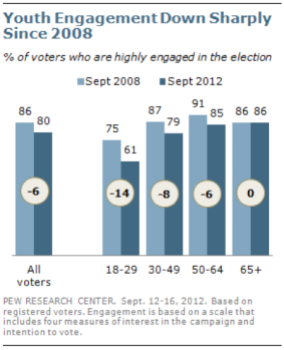By Nia Questel | Posted on November 19, 2015
When Nickelodeon (Nick), a television network designed for children and teens, thought that the millenials were enrolled in college, more “grown up,” and no longer interested in cartoons, they shifted from the famous and loved 90s cartoons to the more modern cartoons.
This was to fit the need of the younger ‘00s babies who knew nothing about famous 90s shows, Rugrats and Hey Arnold. What Nick did not know was that the millenials were “growing up” at a slower rate than the previous generations and were still watching cartoons like Spongebob Squarepants in the comfort of their parents’ homes.
When the millenials started social media movements to “Bring Back the 90s” cartoons, Nick surprisingly responded by adding the 90s cartoons back to its television network rosters to please the millenials.
This seemingly simple event points to a fascinating observation about millenials: when passionate enough about a cause, we have the power to influence out of reach systems to shift in our favor. Millenials overwhelmingly made the decision to combat a system and got it to fit their needs.

Even some recent historical movements triggered by our generation to promote change exhibit our resourcefulness to make bold statements. Some of these events are Occupy Wall St., the Arab Youth Uprising in the Middle East, the Presidential Election of 2008, and the #blacklivesmatter movement.
These movements illustrate that this generation has the capacity to affect change using social media and unity as our weapon. So why aren’t we changing the world?
Our generation can be likened to the cool, smart kid in class that has the power to influence popular opinion to create a positive change but is too distracted by the good-looking classmate next to them, their smart phone, and their “world” to care to provoke change.
We have become the cool kid, the Fonz, the Helga Pataki from Hey Arnold who has the power to bully, persuade, or sway a great majority of her peers but could care less about creating a more positive environment. We have become like Hey Arnold’s Rhonda who only cared about popularity, status, and popular opinion.
A PEW Research Center poll of registered voters conducted in 2012 shows that 75 percent of young people from the ages of 18 to 29 years old were highly engaged in the Presidential Election of 2008 but in 2012 the percentage dropped to 61 percent.
This raises the question: Why are we not engaged in politics and current world events that are shaping our world? Is the only reality that we are interested in that of reality television?
We have the power to sway corporate decisions but there is a soaring amount of mistrust in political and authority figures.
A PEW Research Center report released in March 2014, “Millenials in Adulthood” cites “detached from institutions, networked with friends” and shows numbers that point to an overwhelming lack of trust amongst millenials towards traditional institutions like the government.
“They don’t think they can make a difference,” said Marie Richelieu, a Psychology major at Kean. “So they don’t care.”
Social media has made it more convenient to access news on the go leaving less room for excuses as to why the millenials are not aware of what is going on around them.
“They are very aware,” said Sheedy Milord, a History major at Kean. “But they [peers] don’t care unless it’s affecting their education, themselves, or family.”
Current world events are shaping our world as we know it every day and we need to be involved in the decision making processes that will affect our future. We must stay informed and stay active.
If not, then we are blindly giving away our power to affect change and create a better world. We clearly have the potential to change the world but, when will we tap into the gold mines of power that we possess?